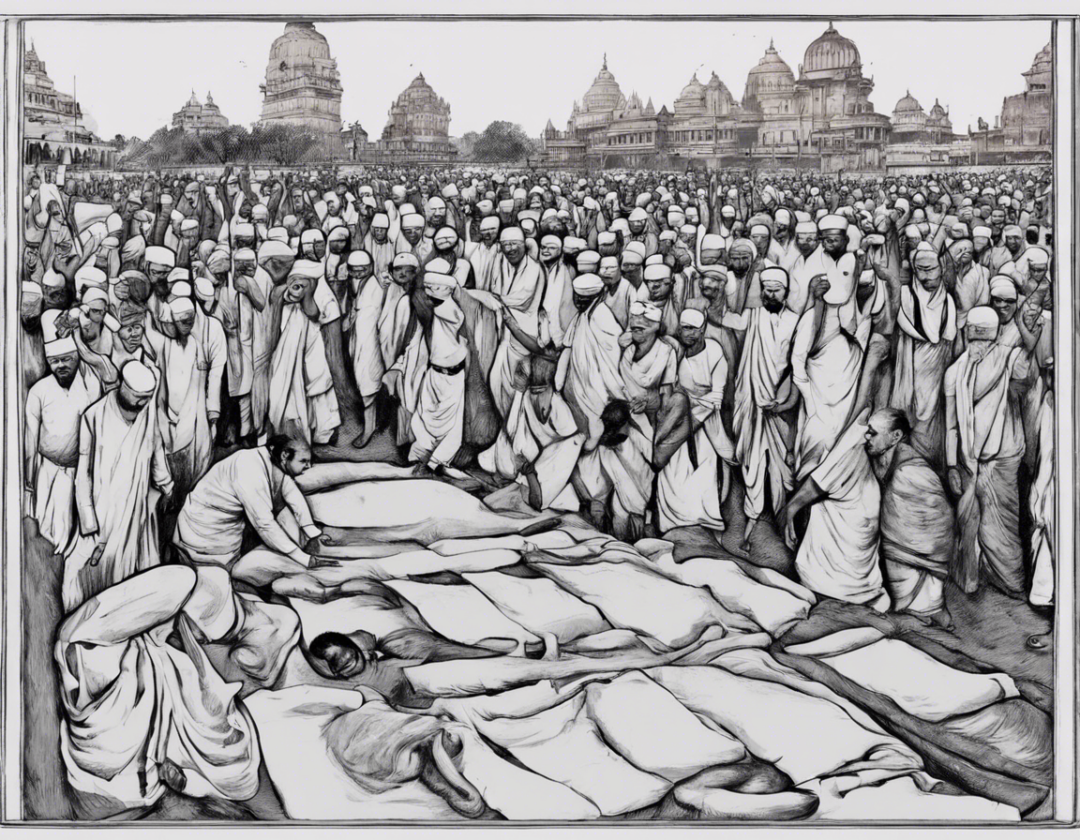Exploring the Janata Dal (Secular) Party: History and Impact

The Janata Dal (Secular), often abbreviated as JD(S), is a prominent political party in India, primarily active in the southern state of Karnataka. Founded in 1999 by former Prime Minister H.D. Deve Gowda, the party has played a significant role in the state’s political landscape. In this comprehensive article, we will delve into the history of the JD(S), its key leaders, ideology, electoral performance, impact on governance, and challenges faced by the party.
Origins and Key Leaders
The Janata Dal (Secular) was formed as a breakaway faction of the Janata Dal party. After the Janata Dal split in 1999, H.D. Deve Gowda, a prominent leader from Karnataka, established the JD(S) with the aim of providing a platform for regional aspirations within the state. Gowda, a former Chief Minister of Karnataka and the 11th Prime Minister of India, served as the party’s founding president and continues to be a key figure within the organization.
Apart from H.D. Deve Gowda, the party has been led by his sons, H.D. Kumaraswamy and H.D. Revanna, both of whom have held important positions in Karnataka’s state government. Kumaraswamy, in particular, has served as the Chief Minister of Karnataka on two separate occasions, showcasing the party’s influence in state politics.
Ideological Standpoints
Ideologically, the JD(S) positions itself as a centrist party with a focus on agrarian issues, social justice, and secularism. The party has traditionally drawn support from rural areas and farming communities, advocating for policies that benefit the agricultural sector. In terms of social justice, the JD(S) has emphasized the upliftment of marginalized sections of society, including backward classes and minorities.
The party’s commitment to secularism is reflected in its stance on communal harmony and religious tolerance. The JD(S) has positioned itself as a party that transcends caste and religious divides, appealing to a broad spectrum of voters across Karnataka. This inclusive approach has helped the party establish a strong presence in the state’s political arena.
Electoral Performance
Over the years, the Janata Dal (Secular) has been a key player in Karnataka’s electoral landscape, often emerging as a kingmaker in coalition politics. While the party has not always secured a majority on its own, it has formed alliances with other regional and national parties to gain power. The JD(S) has a significant presence in the Old Mysuru region of Karnataka, comprising districts like Mandya, Hassan, and Ramanagara.
The party’s electoral fortunes have seen fluctuations, with periods of both success and setbacks. In the 2018 Karnataka Assembly elections, the JD(S) secured 37 seats out of the total 224, forming a coalition government with the Indian National Congress. This alliance, however, was short-lived, and the government faced internal strife, eventually leading to its downfall.
Impact on Governance
The JD(S) has had a notable impact on governance in Karnataka whenever it has been part of the ruling coalition. The party has brought attention to issues of rural development, agriculture, and social welfare, influencing policy decisions in these domains. The leadership of figures like H.D. Deve Gowda and H.D. Kumaraswamy has provided a regional perspective to the state’s administration, addressing the concerns of rural communities effectively.
In terms of infrastructure development, the JD(S) has focused on key sectors such as irrigation, rural connectivity, and healthcare. The party’s presence in successive governments has ensured that the development agenda includes the needs of Karnataka’s diverse population, balancing urban and rural priorities.
Challenges and Future Prospects
Like any political entity, the Janata Dal (Secular) faces its share of challenges in a dynamic and competitive political landscape. One of the primary hurdles for the party is its reliance on alliances to gain power, which can often lead to ideological conflicts and power struggles within the coalition. Managing these internal dynamics while also addressing the needs of its voter base remains a key challenge for the JD(S).
Furthermore, the emergence of new political players and the rise of identity politics pose additional challenges for the party. Adapting to changing voter preferences, especially among the youth and urban electorate, is crucial for the JD(S) to remain relevant in Karnataka’s political scenario. Strengthening its organizational structure and expanding its presence beyond traditional strongholds will be vital for the party’s future prospects.
Frequently Asked Questions (FAQs)
Q1: What are the core principles of the Janata Dal (Secular) party?
A: The JD(S) advocates for agrarian issues, social justice, and secularism, focusing on rural development and inclusive governance.
Q2: Who are the key leaders of the JD(S) besides H.D. Deve Gowda?
A: H.D. Kumaraswamy and H.D. Revanna, sons of H.D. Deve Gowda, have played significant roles in leading the party in Karnataka.
Q3: How has the JD(S) performed in Karnataka’s elections in recent years?
A: The party has been a key player in coalition politics, often forming alliances to gain power. Its electoral performance has seen fluctuations over time.
Q4: What is the JD(S)’s stance on social issues and communal harmony?
A: The party emphasizes social justice and communal harmony, positioning itself as a secular party that transcends caste and religious divides.
Q5: What challenges does the JD(S) face in the current political scenario in Karnataka?
A: The party faces challenges related to coalition dynamics, changing voter preferences, and the need to expand its base beyond traditional strongholds.
In conclusion, the Janata Dal (Secular) party, with its regional focus and emphasis on inclusive governance, has made a significant mark in Karnataka’s political landscape. As it navigates the challenges of coalition politics and evolving voter dynamics, the party’s ability to adapt to changing circumstances will determine its future relevance and impact in the state.








